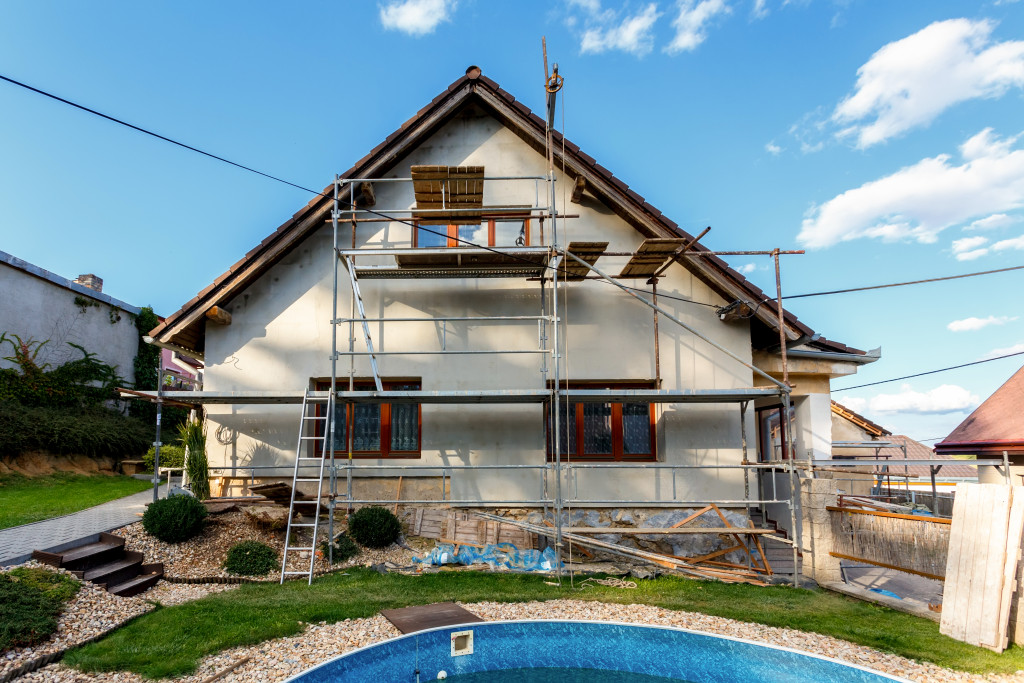- Maintaining indoor air quality through cleaning, ventilation, and investing in air purifiers is crucial for a healthy home.
- Creating a safe and secure environment involves investing in security systems and childproofing measures.
- Implementing a regular cleaning routine helps keep bacteria and viruses at bay.
- Proactive home maintenance to address issues such as leaks and mold is necessary for a healthy home.
- Promptly addressing water damage and plumbing issues can prevent further health risks.
In today’s fast-paced world, our homes have become our sanctuaries. They provide us with security and comfort, making it essential for them to have a safe and healthy environment. Many factors can affect the safety and health of our homes, such as environmental hazards, accidents, or lifestyle choices. This guide will discuss five essential tips to help you maintain a safe and healthy home, giving you peace of mind and making your house happy and comfortable.
1. Maintain Indoor Air Quality
Your home’s air quality is crucial. Allergens, dust, and mold contribute to respiratory issues and can significantly impact your family’s health. Regular cleaning, including vacuuming and dusting, is essential to minimize allergens.
Here are some ways to maintain indoor air quality:
Cleaning and Ventilation
Proper cleaning and ventilation are crucial for maintaining indoor air quality. Regular vacuuming, mopping, and dusting can help remove allergens, dust particles, and other pollutants from your home. Using a high-efficiency particulate air (HEPA) filter in your vacuum cleaner is recommended, as it can capture smaller particles than a regular filter.
Investing in Air Purifiers

Air purifiers can significantly improve indoor air quality by removing pollutants and allergens from the air. They use filters to capture particles and circulate clean air into your home. When purchasing an air purifier, make sure it is appropriate for the size of the room you want to use it in.
Controlling Humidity Levels
Excess humidity in your home can lead to mold growth, worsening indoor air quality and causing respiratory issues. Investing in a dehumidifier can help control moisture levels and prevent mold growth. Keeping humidity levels between 30-50% is recommended to limit mold growth and help alleviate allergy symptoms.
Maintaining HVAC Systems
HVAC systems play a crucial role in maintaining indoor air quality. It is essential to change filters regularly, as clogged or dirty filters can limit airflow and reduce the system’s efficiency. Follow manufacturer recommendations for filter replacement frequency, but generally, replacing them every 2-3 months is recommended.
2. Establish a Safe and Secure Environment
Safety goes beyond health; it involves securing your home against potential dangers. Invest in quality locks, a security system, and motion-detecting lighting to deter intruders. Regularly check smoke detectors and carbon monoxide alarms, replace batteries as necessary, and test them to ensure they’re fully operational.
Childproofing is also essential if you have young children or when they visit. This process includes covering electrical outlets, securing heavy furniture to walls, and placing harmful chemicals out of reach. Remember, anticipating and managing risks before they become problematic is the goal.
3. Implement a Regular Cleaning Routine

A clean home is a healthy home. Implement a regular cleaning schedule to keep bacteria and viruses at bay. Focus on areas often touched, such as doorknobs, countertops, and bathroom surfaces. Use products that kill germs but are safe for your family and pets.
Your cleaning routine should also extend to less obvious places — refrigerator coils, behind large furniture, and air vents. These spots can accumulate dust and grime, negatively impacting air quality and cleanliness. Regular, thorough cleaning is an effective way to maintain a healthy environment.
4. Keep Up with Routine Home Maintenance
Proactive maintenance is key to a healthy home. Periodically inspect your roof for leaks, check for water damage under sinks and near appliances, and ensure your windows are well-sealed. Addressing these issues promptly prevents the growth of mold and mildew, which pose health risks. Overlooking routine maintenance can lead to more significant problems, potentially affecting your family’s health and safety.
5. Address Water Damage and Plumbing Issues Promptly
Water damage and plumbing issues can severely affect your home’s safety and health. Not only do leaks, burst pipes, and other plumbing problems cause structural damage, but they can also lead to mold growth if not addressed promptly.
In severe sewage backup, seeking professional help for cleanup and restoration is crucial. Sewage cleanup, in particular, requires specialized equipment and expertise to ensure proper sanitation and disposal of contaminated materials. Prompt action can prevent further health risks and minimize the damage to your home.
Final Words
Ensuring a safe and healthy home requires ongoing effort, vigilance, and a proactive stance on maintenance and cleanliness. By taking these steps, you’re not just maintaining a living space but nurturing a sanctuary for your family to grow, thrive, and build memories together. It’s about creating a haven that supports your family’s health and peace of mind, making your home truly where the heart is. Remember, consistent care and immediate action on potential issues keep the sanctity of this personal space intact.



